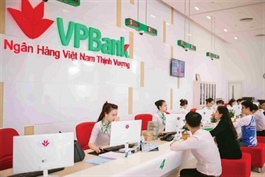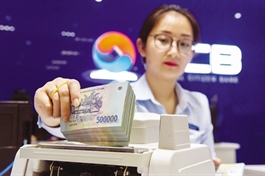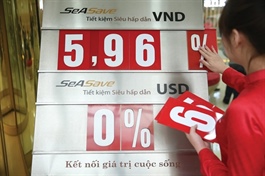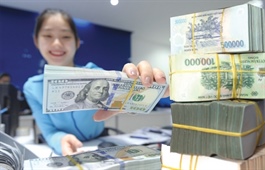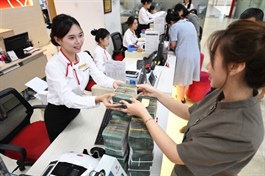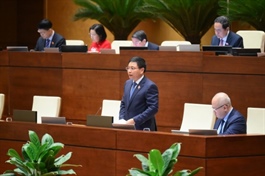New policy on dividend payment of State-owned credit institutions issued
New policy on dividend payment of State-owned credit institutions issued

To be allowed to pay dividend in share, State-owned credit institutions, such as Vietcombank, must meet certain criteria on operational efficiency and credit quality set by the State Bank of Vietnam (SBV). — Photo baochinhphu.vn |
The Government has issued new regulations on payment of dividends by credit institutions in which the State holds 50 per cent or more of charter capital.
Under Decree No. 135/2025/NĐ-CP, which will take effect on August 1 this year, credit institutions, such as Vietcombank, VietinBank and BIDV, can pay dividends in cash or in shares. However, in the case of paying dividends in shares, the institutions must fully meet certain criteria regarding operational efficiency and credit quality set by the State Bank of Vietnam (SBV).
Specifically, to be qualified for paying dividends in shares, the institutions must have a bad debt ratio of less than 3 per cent, and be assessed and classified as having a ‘B grade’ or higher in the previous three consecutive years by the SBV. The SBV’s assessment and classification are based on five main criteria, including revenue, profit after tax and return on equity; bad debt ratio and debt ratio with potential loss of capital; law compliance; and implementation of public products and services (if any).
In addition, the payment of dividends in shares must also be agreed upon by the SBV and the Ministry of Finance before it is submitted to the Prime Minister for consideration and approval.
In the case of paying dividends in cash, the profit corresponding to the State capital contribution in the credit institution must be paid into the State budget in accordance with the law.
Many banks, including State-owned banks, have so far promoted the payment of dividends in shares to increase their charter capital.
Vietcombank in March this year issued shares to pay dividends from remaining after-tax profits at a rate of 49.5 per cent. With nearly 5.6 billion shares in circulation, the bank issued nearly 2.8 billion new shares to pay dividends. After the issuance, Vietcombank's charter capital increased by VNĐ 27.7 trillion to nearly VNĐ83.6 trillion.
According to Vietcombank, the additional capital is intended to fund business activities, development investment and digital transformation, with the aim of improving financial capacity and ensuring a capital adequacy ratio (CAR) in line with the Basel III international banking standard.
Meanwhile, VietinBank plans to use all remaining profits from 2023, more than VNĐ12.5 trillion, to pay dividends in shares this year.
Similarly, BIDV also plans to pay 2024 dividends at a rate of 20 per cent in shares.
Experts say that with a 16 per cent credit growth target set for the entire banking industry this year, the credit growth potential of banks, especially large-scale banks, is very high. This requires banks to maintain a sufficiently large capital buffer to meet the SBV’s requirements for minimum CAR when credit growth is high. Dividend payments in shares will help banks accumulate equity capital, improve CAR, and increase the ability to expand credit.
The SBV has just announced a draft circular regulating CAR for credit institutions. Under the draft, the CAR will gradually increase from the current 8 per cent to 10.5 per cent in 2033.
- 08:05 26/06/2025





